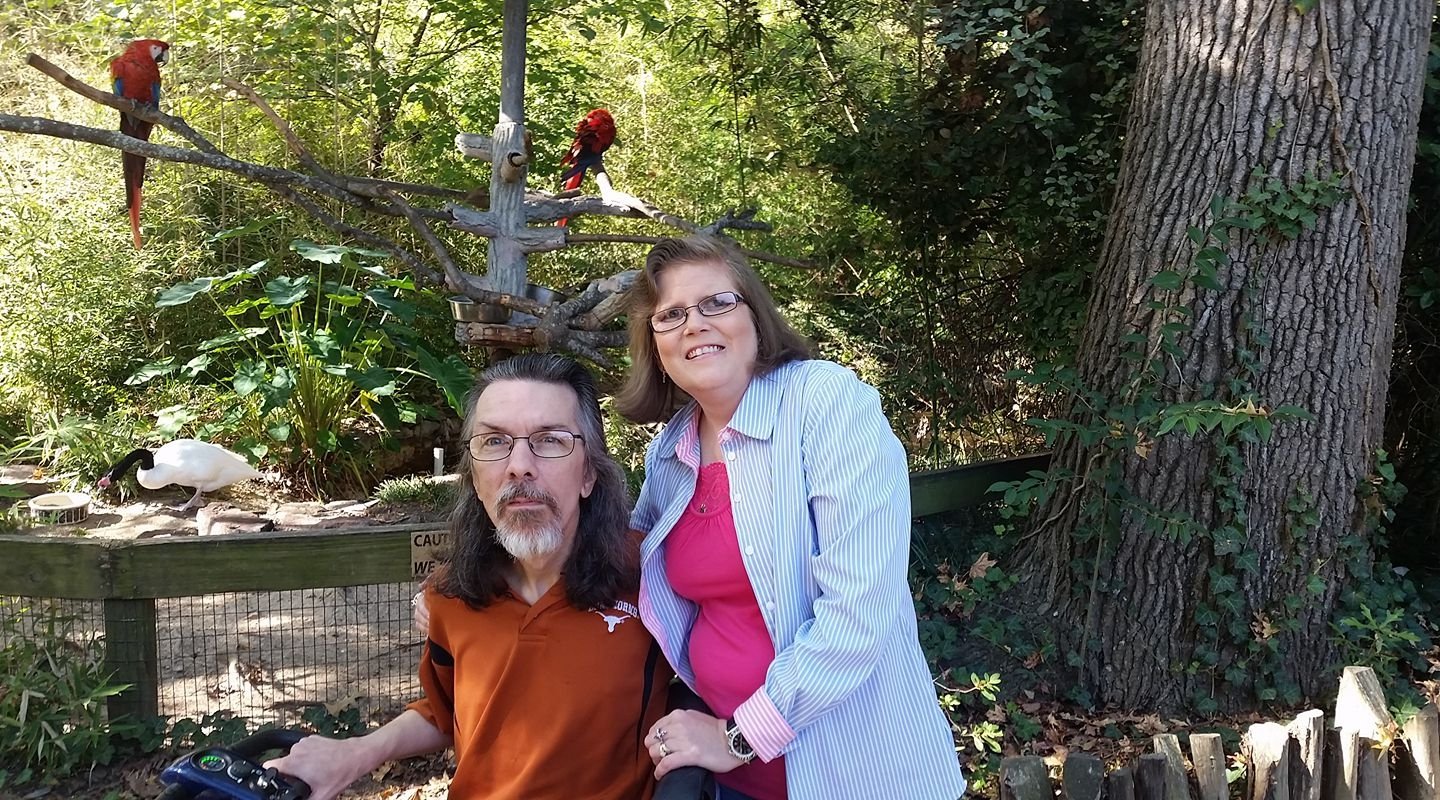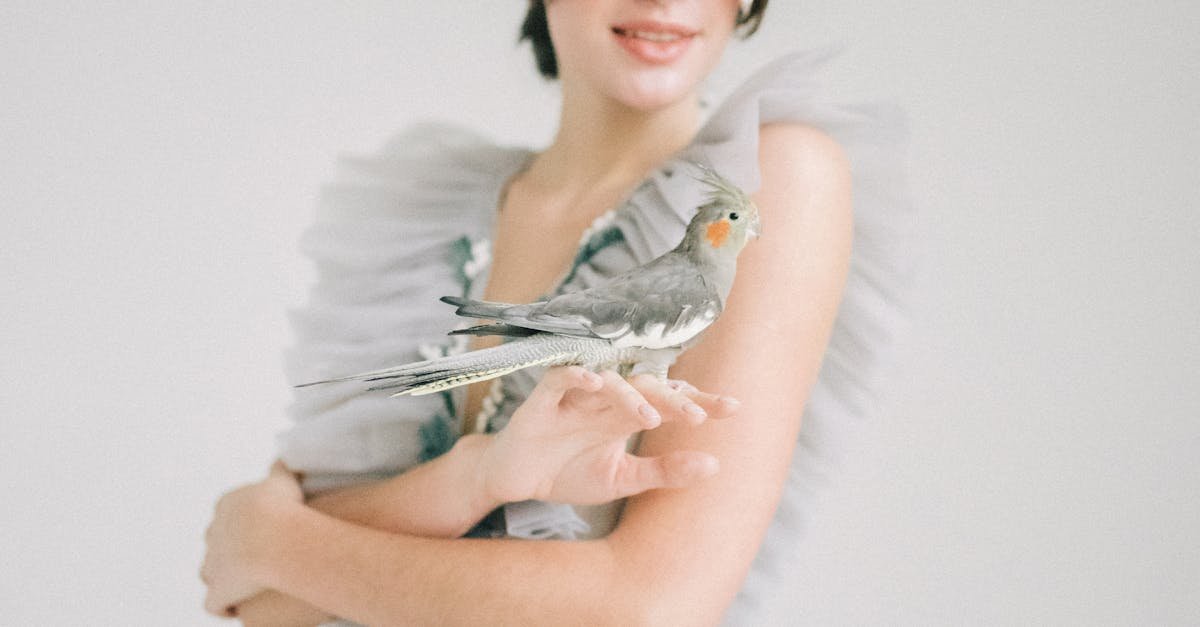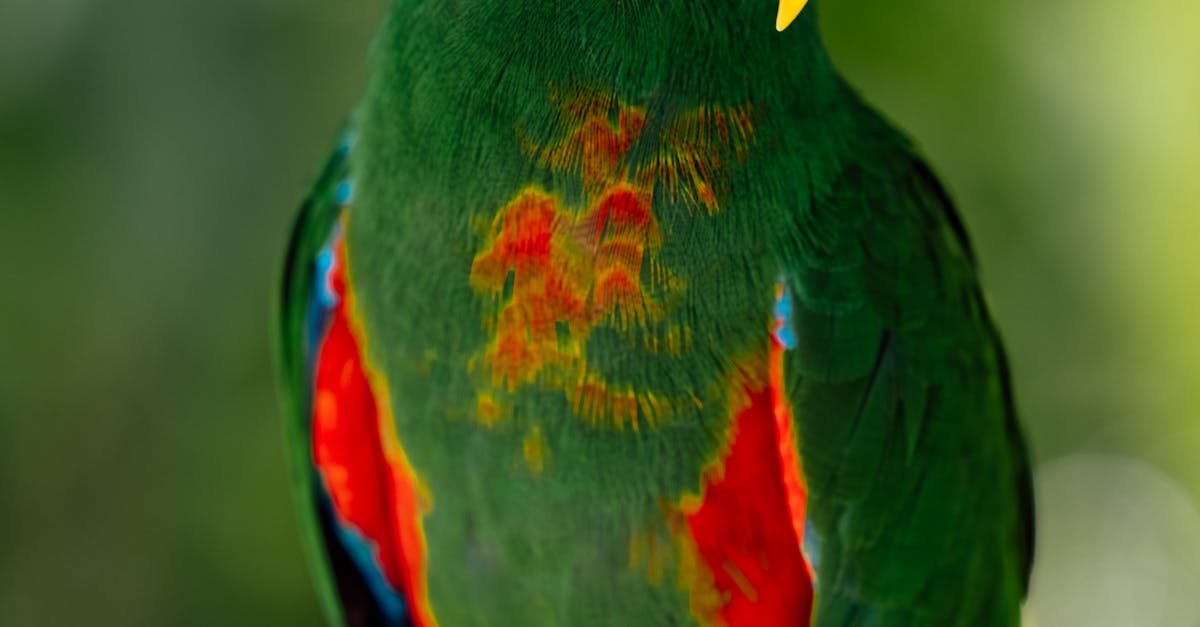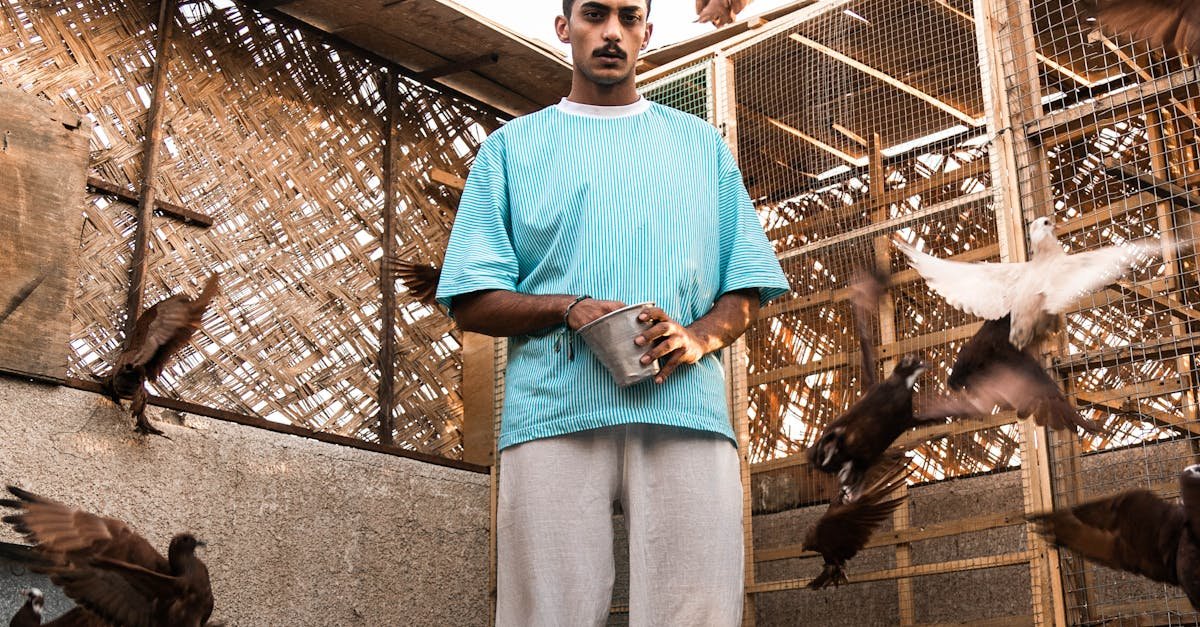Alternatives to Holding Your Cockatiel
Offering alternative interactions can create a strong bond between you and your cockatiel without the need for holding. Providing an enriching environment with toys that stimulate their curiosity keeps them engaged. Simple activities like letting them explore their cage or interacting with mirrors can be beneficial. Birds enjoy foraging, so hiding treats among toys may encourage playfulness and mental stimulation.
Another method to foster connection is through positive reinforcement during training sessions. Teaching your cockatiel simple tricks or commands using rewards builds trust and enhances communication. Additionally, spending time near their cage can help your cockatiel feel more secure. Reading aloud or talking softly can also encourage them to approach you on their terms.
Continue reading this article for more information.
Engaging Activities for Interaction
Cockatiels thrive on mental stimulation and physical activity. Providing a variety of toys can keep them engaged. Parrots enjoy puzzles that challenge their problem-solving skills. Hanging toys, bells, and foraging devices add excitement to their environment. Rotate these items regularly to maintain their interest. Interactive playtime facilitates bonding and allows owners to engage with their pets in enjoyable ways.
Another effective method to interact with cockatiels is through training sessions. Teaching them simple tricks or commands can enhance their trust in you. Using positive reinforcement, such as treats or praise, encourages them to participate. Voice training is also a fun activity; many cockatiels enjoy mimicking sounds or words. These engaging experiences contribute to a healthy relationship between the bird and its owner. Balancing play and training will create a fulfilling environment for both.
The Role of Age in Holding Preferences
As cockatiels mature, their preferences for interaction can shift noticeably. Young cockatiels often display an eagerness to explore and engage with their surroundings, which can include human interaction. When handled regularly during their formative weeks, they may become accustomed to being held more easily. Their innate curiosity also leads them to enjoy brief periods of handling, especially when they associate it with positive reinforcement.
In contrast, older cockatiels may develop distinct personal preferences that reflect their individual experiences. Some may embrace being held, while others might demonstrate a preference for maintaining their distance. Past interactions can shape these behaviors significantly. It is essential for owners to observe their cockatiel’s reactions and respect their comfort levels, as this awareness fosters a trusting relationship.
How Young and Older Cockatiels React
Younger cockatiels often display a more adventurous and exploratory nature. They tend to be more open to physical interaction, including being held. Their curiosity drives them to seek closeness with their human companions, which can lead to positive experiences when handled gently. Socialization during these formative months is crucial, as it helps establish trust and comfort with being held.
In contrast, older cockatiels may have different reactions based on their past experiences. They can be set in their ways, favoring familiar routines and environments. Some may enjoy being held, but others might show signs of discomfort, preferring to perch on their owner’s shoulder or nearby instead. Each individual’s personality plays a significant role in how they respond to physical interaction, reflecting their history and environment throughout their life.
Influences on Your Cockatiel’s Personality
A cockatiel’s personality can be shaped by a variety of factors, including genetics. Some birds may exhibit more outgoing or friendly behaviors based on their lineage. Breeding practices can also play a role, influencing traits such as sociability or timidity. Understanding these inherited characteristics can help owners better cater to their birds’ needs.
Environmental influences further contribute to personality development. The way a cockatiel is raised, including interactions with humans and other pets, significantly impacts its behavior. Early socialization is crucial; birds exposed to frequent positive interactions are likely to become more affectionate and trusting. Conversely, a lack of social exposure may lead to shy or fearful behavior in adult cockatiels.
Genetic and Environmental Factors
A cockatiel’s personality can be largely influenced by its genetic background. Specific traits, such as sociability and tolerance for handling, can vary based on breeding practices. Birds from more social or interactive lineage may display a propensity to enjoy being held, while those with less socialization in their gene pool might prefer maintaining a certain distance from human interaction. Understanding these genetic predispositions can help owners gauge their bird’s comfort level with handling.
Environmental factors also play a significant role in shaping a cockatiel’s behavior. The early experiences a bird has, including socialization with humans and other pets, directly influence its approach to interactions as an adult. Birds that are raised in nurturing environments with frequent, gentle handling may develop a fondness for being held. Conversely, those that experience fear or neglect during critical developmental stages may become wary or resistant to physical closeness. Creating a trusting atmosphere can therefore encourage a more positive attitude toward handling.
Please be sure to check out The Complete Guide to Wild and Pet Bird Care: Tips, Products, and Resources
FAQS
Do cockatiels enjoy being held by their owners?
Cockatiels have varying preferences when it comes to being held; some may enjoy it while others may prefer to interact in different ways.
What are some alternatives to holding my cockatiel?
Alternatives include engaging in interactive play, providing toys, or training sessions that allow for bonding without physical restraint.
How does the age of a cockatiel influence its preference for being held?
Younger cockatiels may be more accepting of being held, while older cockatiels might have established preferences that could make them less inclined to be held.
What engaging activities can I do with my cockatiel instead of holding?
You can try offering treats, playing with toys, or training them to perform tricks, which can help foster a strong bond without necessarily holding them.
How do genetic and environmental factors affect a cockatiel’s personality regarding being held?
Genetics can influence temperament, while environmental factors such as early socialization and experiences with handling can shape their comfort levels with being held.
Related Links
The Ultimate Guide to Owning a Cockatiel
What not to do to a cockatiel?
How many days can a cockatiel be left alone?
How to care for a cockatiel for beginners?
What do cockatiels love the most?
Is it OK to spray a cockatiel with water?

My name is Shane Warren, the author behind Chirping Birds Hub – your ultimate guide to the wonderful world of birds! Unleash your inner avian explorer as we delve into a vibrant library of knowledge dedicated to all things feathered. From learning about diverse bird species from across the globe to understanding their captivating habitats and behaviors, I’m here to fuel your passion for these magnificent creatures. Not only that, but I also provide valuable insights on being a responsible and informed pet bird owner. Join our vibrant community and let’s celebrate the feathered wonders of the world together – one chirp at a time.


